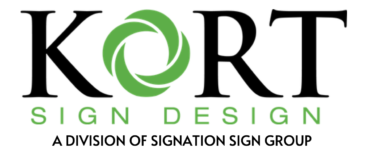When Do You Need a Sign Permit?Whe
For outdoor signage, you almost always need a permit. In fact, did you know that in most cities, even hanging up a temporary banner on your building or putting a banner flag out on the corner will require a permit? In the city of Minneapolis, sign permits are only issued to licensed contractors (like us). In other cities the business owner can apply directly, but the process can be complicated and expensive, especially if it’s not done correctly.
But don’t let that deter you from using signage to promote special events or offers. Signs are a very cost effective way to attract new customers and grow your sales. The investment of time and materials will pay off many times over and has been proven to be an efficient and creative form of advertising. Just follow the rules!
- Every city has different sign regulations, and there are variations by zone, so don’t assume that what your neighbor is doing across the street is allowed at your location. Use a professional sign company to weed through the details.
- Permits should be obtained before even starting to manufacture the signs, so allow at least two weeks for the paperwork, and then 2-6 weeks for production (depending on the type of sign). Use a sign pro to plan the project timeline in order to meet your deadline.
- Most cities require a “mock up” and/or elevation drawing of the sign be submitted with the permit application. A sign pro will do that for you and manage the whole process, including working with your landlord for the appropriate sign approvals if needed.
As we’ve said before, don’t wait until the last minute to create your business signs. They should be part of your build–out budget as well as your annual marketing plan. Contact us early (as in a couple of months) whether you’re starting a new business, moving to a new location, or just having a seasonal sale. We’ll provide a variety of ideas, production options, costs, timelines and full service coordination of all that fun-filled paperwork.
n Do You Need a Sign Permit?


